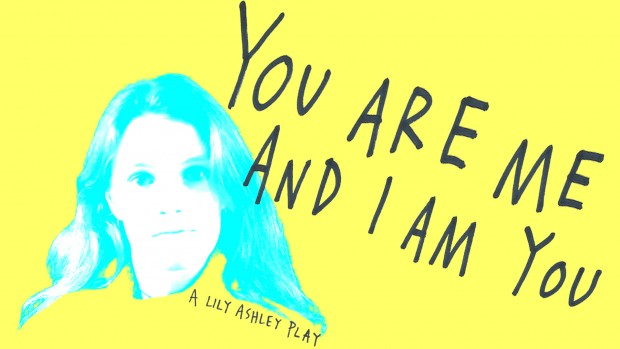SOPHIA TARA COMPTON reviews You Are Me and I Am You at the Vault Festival
Imagine taking off each item of clothing you are wearing in front of a room of people: slowly, deliberately and with unwavering purpose. You stand entirely exposed under an unforgiving, glaring light that throws your body into sharp relief, every crevice laid bare. You then put your clothing on again, item by item, relishing the relief of this return to comfort and normality, but also liberated from insecurity because your onlookers have now seen everything you might have tried to hide.
When Lily Ashley’s sister was asked what to expect from the monologue You Are Me And I Am You at Waterloo’s Vaults festival, ‘figurative stripping’ was the analogy offered. She was spot on: Lily’s solo performance, written and directed by herself, felt naked in many senses – which is why I don’t feel right calling her ‘Ashley’, here. The surname seems out of step with the generous, painful, maddening and totally unpretentious honesty she assaults the audience with.

The production itself is stripped back: a single neon-wrapped podium that Lily stands on for most of the show is thrust up nearly the audiences’ aisle. This in-your-face position leaves a bare space extending deep behind her, cloaked only by a single white sheet of fabric emblazoned with a large red circle. The contours of her body are on show, barely concealed by Beatrice Vermier’s costume design; a torn white top, knotted with strips at the back, diaphanous skirt and white ballet flats. Frank Macpherson’s sound and lighting, the only other accompaniment on stage, allows for myriad other kinds of nakedness to be conveyed. She uses different colours to transition between different moods, from furious, loud, brazen just-had-sex (with someone I shouldn’t have) nakedness for the section ‘mad – red’ to a sense of the reckless abandon of running naked across highland hills came through in the penultimate sequence ‘peaceful – blue’, when Lily finally releases herself from the podium and spirals across a blue stage.
Most piercingly unclothed, though, are her words. Her script is an assembly of thoughts floating out of the deepest recesses of a brain. Not a word feels forced, pretentious or unnatural – moments of piercing profundity are interwoven with and undercut by clichés and colloquialisms: ‘have I been a bad girl?’ followed by ‘You have been a bad girl yes you stupid idiot!’ Although her stream of consciousness carries the weight of personal experience, it feels like a conversation. I have never listened to another person so straightforwardly articulate my own soul (and listening to the audience after the show I was not alone in thinking this).
On a basic level the play can be read as the narrative of a break-up. Lily has a rainbow of emotions, starting off nominally ‘happy – yellow’, repeating ‘I love you’ as though the repetition might make the words come true; moves to ‘scared – orange’, desperately clinging on for fear of facing the outside world alone. Next is frenzied ‘mad – red’, which precludes the loss of energy and return to reality of ‘sad – purple’. This is all necessary to allow for the release of ‘peaceful – blue’ and ‘powerful – green’, gesturing towards a recuperation of truth and authenticity of self.
Throughout, Lily embodies a mixture of defiant strength and exhausted vulnerability, her sinewy frame poised, it seems, to throw a punch or crumble to the floor at any moment. Even early on, entreating the audience to stay with her – ‘I can get better I promise or is it that I am a scaredy cat cos I know but that is something I am working on I promise’, – a film of neediness covering her eyes, her rumbling strength is palpable under the surface. These two competing energies become two voices; one the most tremulous version of Lily’s own and the other a demonic Welsh raver. Devil may care, aggressive, domineering Lily provides many moments of laugh-out-loud comedy, making gun shapes with her hands, and beating vulnerable Lily – ‘go home and sulk you stupid mong’ – into submission. A mark of the subtlety of Lily Ashley’s script is that even in this blatant polarisation there is nuance and depth: Welsh-voiced Lily is the bully inside your head that tells you you’re pathetic, but you can’t help but admire and be fascinated by her charisma.
You Are Me and I Am You is an ambitious title for a solo performance: it proclaims ‘I am going to tell you my experiences, and in the telling you are going to see your own life: I, single human me, am going to recast the experiences of however many hundred people come to watch me in a mould that you instantly recognise’. And that is exactly what Lily Ashley does.





